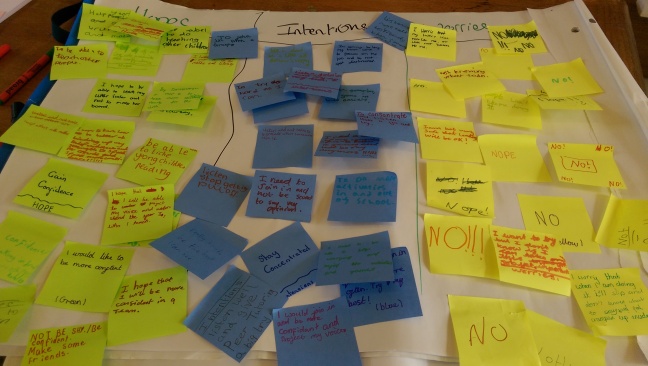
It’s been a long time since I have been in a classroom for any length of time, more than two decades in fact, but in my second week at UFA as Communications Manager, I went back to Junior School.
I was lucky enough to join a group of 20 nine and ten year olds on the first day of a Peer Tutoring course being delivered by the UFA team in a Derbyshire school.
With no experience of education beyond my own, having children of school age and a family that works in schools and colleges, my perception of what Peer Tutoring is was limited, to say the least.
Put simply, I thought it was about some of the cleverest, older children teaching younger children what they knew.
It was a preconception that quickly changed after seeing the programme in action, as Peer Tutoring can indeed be that simple – but it can also be so much more.
At the school I visited, the children were drawn from a mix of classes and year groups and had been encouraged to write about why they wanted to be a Peer Tutor. For many of those selected, the motivation to get involved was far more about building their confidence and it was a theme that echoed throughout the day.
Some of the children were painfully shy, others far more outgoing and quick to express their views, but the setup of the day and the close eyes of Lula and Neil – who were delivering that day’s training – meant that very quickly everyone got an opportunity to have their voice heard.
The session quickly moved out of the classroom and into a hall, where children were encouraged to physically walk the course to understand what they would be doing for the next two days.
A quick memory name game and a quiz soon broke the ice between the children and got them thinking about what learning meant to them.
It was this look at the Peer Tutors’ own learning preferences that formed much of the focus for the day and encouraged a degree of self-awareness in the children (which was obvious many of them had never had before).
This was quickly followed by a session discussing goals, intentions and fears for the day and it was evident from the sticky notes on the board that fear of failure and again, that lack of confidence, was high on the agenda for many of the pupils.
A personality quiz to map their intelligence profiles had many of the children discussing what they were good at, but also quickly establishing that it was OK to possess a range of strengths and for everyone to be different.
The energy throughout the day was maintained by the bite-size sessions of different activities, which gave the children the opportunity to get actively involved, moving round different spaces, doing very different things.
“It’s not like a normal school day ,Miss!” was one of the comments which came up several times.
By the end of the day, the children were far more attuned to their own learning and what it would mean to share that with someone. By the time they were asked to role play peer learning, they were already taking their insights from the day, and in many cases, changing or feeding back on another’s behaviour as a result.
Looking back at the end of the day, there were some great highlights. The first session involved making name badges, where children were asked to write down an ambition, a favourite activity and a holiday, as well as their name. This quickly initiated some brilliant discussions and debates (for me, too!)
The more physical sessions – which included creating a human bar chart – stimulated the children, refocused their interest quickly and effectively and gave an energy and pace to the day, which everyone enjoyed.
There was a great deal of discussion about feeding your brain and keeping it watered, which, combined with a conversation about exercise and sleep, helped the children to explore what they could change to help their brains.
But the biggest highlights for me were the insights the children gave into what they had learnt. What they had learnt about themselves – and how their tutees might be feeling.
“You’ve got to think about the other person’s point of view and how they might be feeling, because it can be a bit scary being in Year 3,” voiced one.
“It’s really hard putting up your hand and saying you don’t know something in front of the whole class, but I might be happier saying that one to one with someone my own age,” said another.
“You don’t do all your learning at school. The world is a much bigger place than school and you learn much, much more outside it.”
“You have to be nice all the time when you are a Peer Tutor. There’s no point in being nice when you are doing it, but then being horrible the rest of the time.”
It’s these insights that make Peer Tutoring so valuable to the tutors, as well as the tutees.
By the end of the day, there was a real empathy from the children for each other- and for the children they would be working with. It’s more than just teaching someone what you know, it’s walking in their shoes for a while and the Peer Tutors in training I saw, grasped the value of that and started to put it into action on Day One.
For more on Peer Tutoring, visit www.ufa.org.uk.



